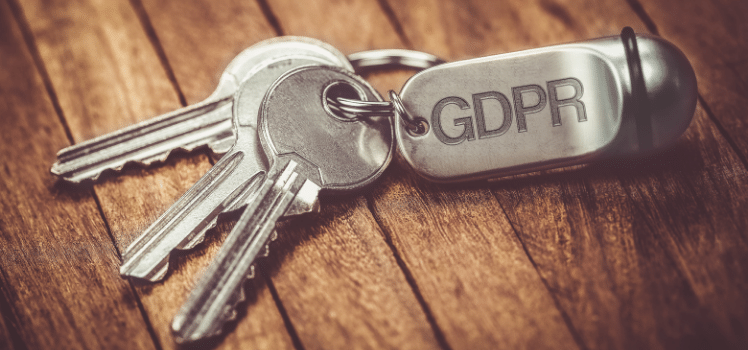If you are letting a property in the UK, GDPR for landlords certainly affects you in a few key ways. But before we address these major changes, let’s take a quick look at how we got to this point.
A brief history of UK data protection
In essence, data protection regulation has been enforced in the UK as a way to ensure that businesses and business owners do not abuse or misuse the data of their customers. The purpose is to ensure it is not just used correctly but also stored safely. In the UK, the first Data Protection Act was introduced in 1984.
It has been subsequently revised over the years and in 1993, a famous case was brought forward which saw PC Brown being prosecuted for mishandling data. Though the ruling was eventually overturned, it was a landmark case and UK businesses seemed to start taking data protection more seriously.
What are the biggest changes?
GDPR, or General Data Protection Regulation, came into force on 25th May 2018.
Individuals have had their rights extended
It filtered through from EU law and is the basis for the data protection regulation that is now in force.
Here’s a brief overview of the 5 most important aspects of GDPR. These affect businesses and business owners of all types.
GDPR aims to give individuals back control over their data. To help accomplish this, there have been clear outlines of certain rights. This includes the right to be forgotten, the right to alter data and the right to transfer data. So, if someone is not happy with you holding their information any longer, they can update it, transfer it to a competitor or have it deleted. You must comply with such wishes.
Businesses must work harder to safely store data
In this digital age, threats surrounding consumer data are on the rise. You needn’t look further than the recent Facebook-Cambridge Analytica scandal to see how angry the world has been that companies have been mishandling their data.
You should have sufficient protocol in place to store any data safely.
If not then…
Penalties for failure to comply
The ICO (Information Commissioner’s Office) is the organization responsible for ensuring people comply with GDPR. They have had their powers expanded and can impose harsh fines and penalties on businesses and individuals who fail to comply.
This is as much as £17 million. The ICO has the ability to test your systems at any time as well.
Businesses must be careful about how they collect personal data
You should be transparent about what information you collect from someone and why. You should be open and honest and declare all of your intentions.
The best way to do this is through a landlord privacy policy.
Keep reading to find out how to get your own.
GDPR is here to stay
Finally, and most importantly, GDPR is here to stay!
Even though it has filtered down through EU law, it will be remaining firmly in place once Brexit finally comes about. So, if you are currently failing to comply, then it’s time to sort it out.
What about GDPR for landlords?
OK, so now you have an idea of what GDPR is and how it affects everyone, let’s delve into how you can easily comply with GDPR for landlords.
First off, you need to ensure that you are being very open with any tenants about why and how you collect their data.
Next, you want to ensure that said data is stored safely and is at minimal risk of being stolen.
Finally, you need to give tenants the ability to access, alter and delete that data whenever they wish.
So, what are the steps you need to take? Well, here are the two best places to start.
1. Landlords should register with the ICO
The ICO requires all landlords (and businesses) to register with them, and you may need to pay a fee.
The best way to ascertain if this applies to you is to head over to the official website.
They will take you through a few steps to help you out, and that should answer many of the questions you have.
2. Get yourself a landlord privacy policy that is GDPR compliant
A landlord privacy policy is an important document that you should give to all new tenants and make as clearly available as possible.
You can link to this on your site (if you have one) and also give one to every new tenant. We have included this privacy policy in our tenancy agreements which is a service available in our letting packages.
A good landlord privacy policy informs the tenant on how and why you collect and store their data and aims to reassure them of its safety.



